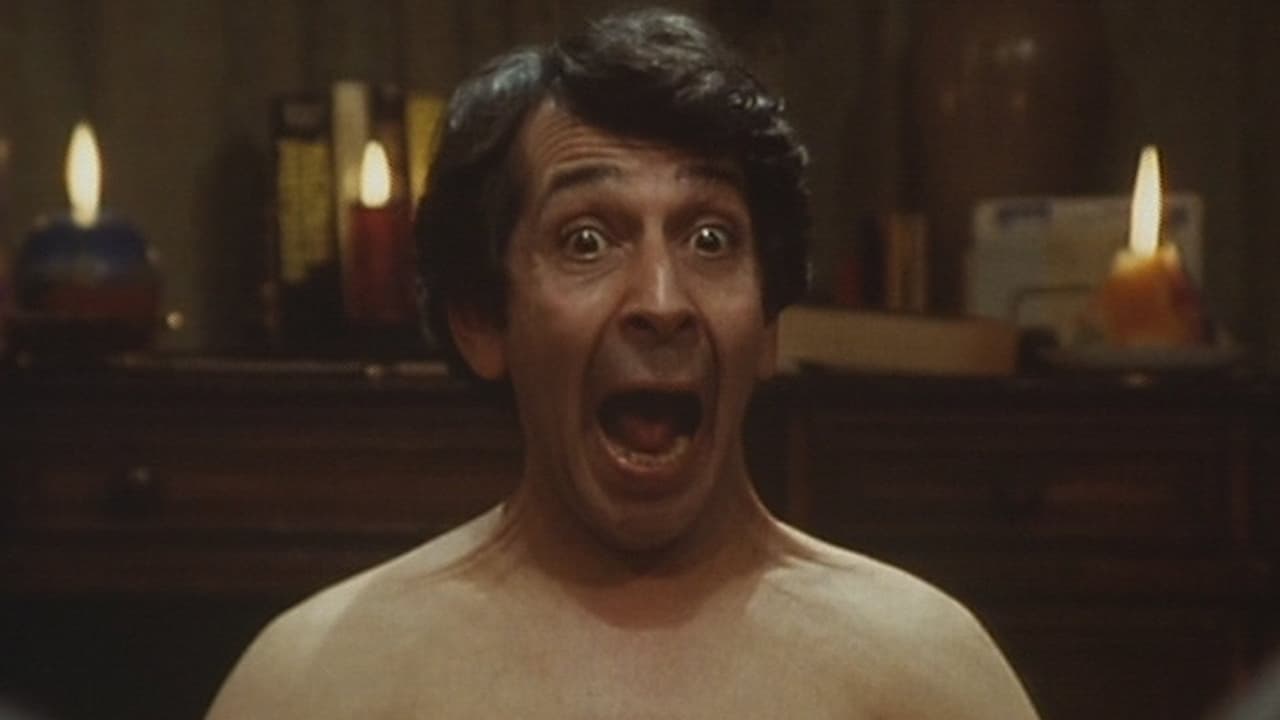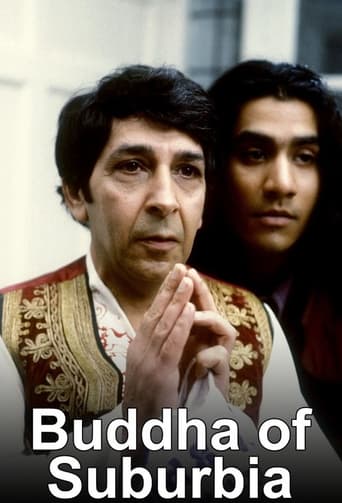

Wow! Such a good movie.
... View MoreThe plot isn't so bad, but the pace of storytelling is too slow which makes people bored. Certain moments are so obvious and unnecessary for the main plot. I would've fast-forwarded those moments if it was an online streaming. The ending looks like implying a sequel, not sure if this movie will get one
... View MoreThe film's masterful storytelling did its job. The message was clear. No need to overdo.
... View MoreThere are moments that feel comical, some horrific, and some downright inspiring but the tonal shifts hardly matter as the end results come to a film that's perfect for this time.
... View MoreKarim's mother is English and his father is Indian. Therefore Karim has some problems with life in British society which is becoming more and more racist and intolerant; he experiences this especially when he wants to find himself a way of becoming an actor.While I know nothing about racism in England, especially in the 1970s, this was a rather interesting film because it had the Indian/English focus, as opposed to the black/white focus we tend to have with American films. It is a different dynamic, and I have to wonder how it all works there. I don't think of Indians as being one of the more hated racial groups, but in England you do have that colonialism stigma factored in.Naveen Andrews nailed it. I was not aware of who he was until "Lost", but this mini-series shows he was a great actor long before that. I have to wonder why he wasn't noticed sooner. Then again, he seems to be stuck with ethnically ambiguous roles (on "Lost" he was Iraqi), so maybe his full value is not appreciated yet.
... View MoreA surprising series from the BBC that comes to us from the rather distant time of 1993, but that speaks of the 1970s, the time of punk and the beginning of Margaret Thatcher who was already out when the mini series was produced. And they bring it out in 2007 in the DVD format. At last some may say. These time lags are very interesting because the meaning of the story is completely different according to the time you stand in. At the time of the arrival of Margaret Thatcher, the National Front was a real danger, and the mini-series shows it quite well and it is Margaret Thatcher who thwarted this National Front's ambition completely and utterly by recuperating their votes. It was a time when the left thought along the narrow line of an old model, that of the communist inspired unions, particularly the mineworkers' union, and of the Labor left of Tony Benn, the aristocrat turned a strict socialist. And they needed to be woken up to reality and they were by Margaret Thatcher again. They had to realize the old more or less violent and always intimidating methods were wrong and that the system of the free market economy was not collapsing at all because market economy was not, still is not and will certainly not be collapsing, even if its management is changing and will be changing maybe towards a more controlled, smooth and just functioning. The film looks at the extremely crucial issue of the time: the integration of the massive immigration from South Asia, Pakistan, India and Bangladesh. It considers this movement from a mixed point of view. First of all the point of view of the immigrants themselves, and particularly one young man who is the son of an Indian man and an English woman. His vision is always divided because he is mixing with people from both communities. It shows both his very Indian approach of personal relations that takes sex for what it is, nothing much except some kind of relaxing way of meeting with other people. Then the orientation is not important at all. But at the same time he desires some deep sentimental and emotional commitment and that runs in conflict with the English approach of things that more or less considers commitment like a downfall, a fault, a flaw in the free texture of life at the time. Since he is not an opportunist he ends up stepping out of a group in which sex was some kind of payment for a career, and since his profession is acting, that leads him to some kind of rather aloof position though all the more chased after because he appears hard to catch. At the same time we have the point of view of the white actors and directors who want to give Indians their chance to be well represented on the stage but then these Indians run into the African blacks who do not have the Indian distanciation (the Blacks are not beige enough as this young man says) and who consider a humorous discourse about Indian immigrants to be yielding to the white representation a society they essentially see as racist is imposing onto them. If you add to that the punk music of one of these white friends of the main actor's you have the full picture. This punk movement was definitely on one hand an extreme and excessive denunciation of white fascism but it also led at the time to the antagonistic movement of the skinheads who were racist and violent. In other words that was a time when things were very volatile and changing too fast for anyone to know which way they were going. That was the time of the squatters and the Claimants' Union. Strangely enough though most of these claimants were whites who wanted to use the social protection that had been set up after the war and up to the end of the 60s to live in poor but decent conditions, with no regular profession but plenty of time to prop up all kinds of protest movements. I remember the squats of the White Chapel area and the punk concerts of the Marquee and the Roundhouse of these mid and late mid 70s. That was a time worth living and that is a time worth remembering. This miniseries gives us a fair picture of what could today inspire us slightly more: there is no future for any country and the people of those countries if there is not a fair dose of freedom, diversity and hard work.Dr Jacques COULARDEAU, University Paris Dauphine, University Paris 1 Pantheon Sorbonne & University Versailles Saint Quentin en Yvelines
... View MoreHaving enjoyed the quirky little "My Beautiful Laundrette," I was most disappointed by "The Buddha of Suburbia." The film is a disaster from beginning to end, and has the feeling that length was the sole purpose, as one sometimes feels when reading less-inspired 19th-century novels whose authors were paid by the word.There are nearly an hour's worth of shots of people walking up stairs, crossing streets, and standing silently which would have been edited by any other director. There is truly no reason in the world for it to have gone over two hours. Furthermore, the production is shoddy. Lighting is bad, lines are mumbled, blocking awkward.There is no "plot" per se, no shape to this massive mess. There are clues that it goes from the beginning to the end of the 70s, yet the events feel more like a three-year span.The subject simply appears to be the myriad ways in which the people in young Karim's life find to ruin their happiness. Their confusions range from hopeless dedication to old-country ways, (arranged marriages), to faddish spirituality, the constriction of "liberating" politics, disposable families, drugs, etc.With a theme like this, we want a character who struggles against the tides of spiritual emptiness. Karim's mother and brother might have fit the bill as the only characters with common sense, but they are virtually ignored. Instead, the main character is Karim, who drifts helplessly on the currents that mangle the lives of those close to him. Life simply happens to Karim, everything that transpires is the result of someone else's plans. Only in the latter half of the film does he actually have any kind of goal at all (becoming an actor).Never does he ever rise beyond being more than a helpless figure trying to be "nice," whether that means being a peacemaker, a lover, or a friend, or trying all three to find that none of them work. His relationships happen to him, and when they go south, he is unable do much more than voice a vague sense of complaint.Now characters like this have excellent potential; consider "The Stranger," "Zelig," "The World According to Garp," or "Being There." But Karim is so dedicated to helplessness that our sympathies are never engaged for him.And without a sympathetic character, a memorable line of dialogue, or even a sense of purpose, "The Buddha of Suburbia" is a waste.
... View MoreA very good adaptation of a great book. Fantastic performances, especially the wonderful Naveen Andrews, great depth of character, great writing. A story, really almost an epic one, of a young man coming to terms with his complex identity in the rapidly changing world of 70s England (suburbs and then london). The film didn't capture the atmosphere of the 70s as well as the book, but I suppose making it a real period piece would have distracted from the characters.As usual, screenwriter /playwrite/ novelist Hanif Kureishi is brilliant in his portrayel of politics, sex, spirituality and fashion, and what happens when they start to become indistiguishible. I saw it actually as a series in England and was happy to see that was just as delightful as a whole, but I also recommend seeing it over two nights as its probably close to 4 hours all through. Also, the Bowie soundtrack is fantastic.
... View More